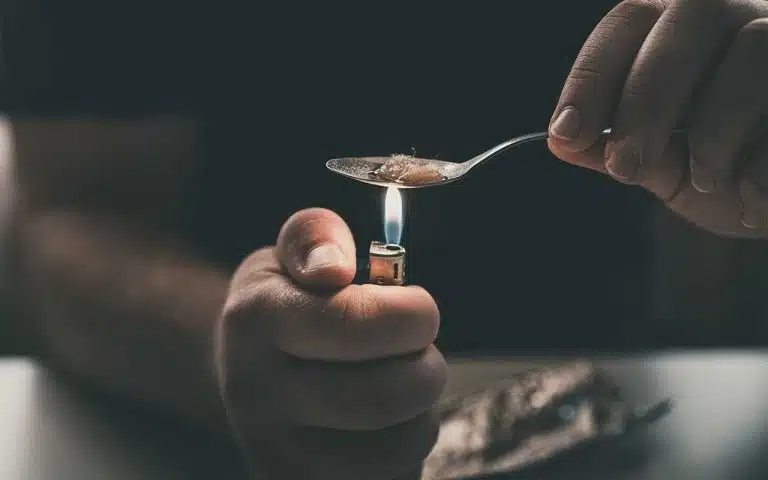Pure heroin will usually not smell like anything. However, most street heroin is “cut” with other substances or additives. It can take on the smell of these additives, which may include sugar, powdered milk, caffeine, acetaminophen, and others.
Street heroin may have a strong vinegar smell, or it may be odorless. A vinegar smell is one possible sign of impure heroin.
Why Heroin Can Smell Like Vinegar
Heroin is made from morphine, which is a naturally occurring opioid (or opiate). One way to get heroin from morphine is with a chemical reaction. One reaction includes vinegar as a byproduct or leftover from the reaction.
A vinegar smell in street heroin can tell you how a dose of heroin was made. It may also tell you chemicals used to make heroin are still in the dose, leading to impurities.
Different Forms Of Heroin & Their Smells
As an illicit drug, heroin comes in many forms. Heroin looks and even smells different depending on its form, and can even affect the body in different ways.
Heroin Powder
Heroin can be sold as either a white or a brown powder. Brown powder heroin may be more likely to have a vinegar smell than white powder. Otherwise, powder heroin will often take the smell of substances added to it.
Additives that can add a smell to powder heroin may include:
- acetaminophen
- powdered milk
- cleaning products (laundry detergent)
- other drugs (fentanyl, methamphetamine)
Cat litter and urine are other smells that can be found in street heroin. Street names for heroin powder include brown sugar, white horse, and smack. Injecting is the most common way to use heroin, though snorting is also possible.
Black Tar Heroin
Black tar heroin is a sticky, dark substance. It may smell like burnt coffee or acid. It can be cut with shoe polish or quinine, which can add to these smells.
Other Signs Of Heroin Use
If you think a family member or loved one may have heroin addiction, it may be hard to tell through smell alone.
Since heroin may or may not have a smell, it can be hard to sniff out even in a confined space (such as a bedroom or a car). Once injected or lit, any smell may go away fairly quickly.
Other signs of heroin use are more obvious than smells. Changes in behavior, as well as physical and mental health changes, can be harder to hide than the smell of heroin.
Treating Heroin Abuse & Addiction
Heroin is a highly addictive and dangerous opioid. There are no approved uses for heroin in the United States. Any form of heroin use is a form of substance abuse. It can be hard to tell what other substances may be added to a dose of street heroin, further increasing its risks.
When left unchecked, heroin abuse can cause serious health problems. Extremely uncomfortable withdrawal symptoms are common, which can cause people to keep using heroin to avoid these symptoms. It can be difficult to beat a heroin addiction without proper addiction treatment.
To learn more about potential treatment programs for different forms of opioid abuse, talk to your healthcare professional or contact us today.
Written by Ark Behavioral Health Editorial Team
©2024 Ark National Holdings, LLC. | All Rights Reserved.
This page does not provide medical advice.
American Council on Science and Health - 5 Things You Might Not Know About Heroin | American Council on Science and Health
National Institute on Drug Abuse - Commonly Abused Drugs | National Institute on Drug Abuse (NIDA)
United States Department of Justice - Opioid Facts
United States Drug Enforcement Administration - Drug Fact Sheet: Heroin

Questions About Treatment?
Ark Behavioral Health offers 100% confidential substance abuse assessment and treatment placement tailored to your individual needs. Achieve long-term recovery.
100% confidential. We respect your privacy.
Prefer Texting?
Our friendly support team is here to chat 24/7. Opt out any time.








 Learn More
Learn More








